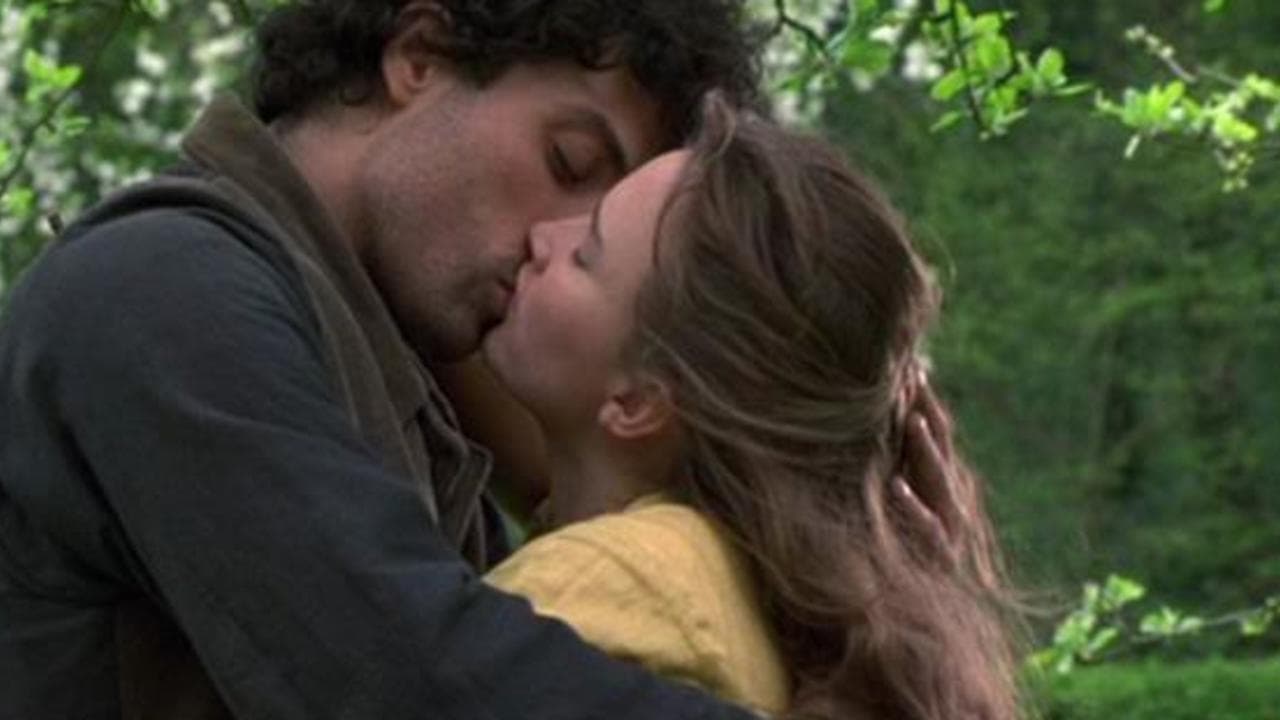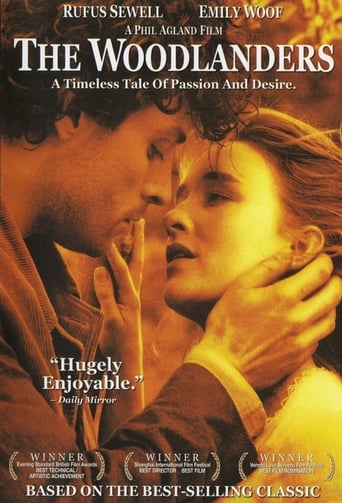

Saw this at our wonderful new local cinema just a mile or so from where most of the film was shot. We were even lucky enough to have a Q and A with the cinematographer who worked on the film after. He lives locally, by the name of Ashley Rowe. I absolutely loved the film, and what a terrific chap! He rounded off a fab night with extremely interesting information about the shooting of the film and his role in it. Thank you so much to him for attending, despite having to leave for the shooting of a new film it London tomorrow at some ridiculously ungodly hour! A special thank you to the Regal volunteer Barry Robbins, who helps run our fab new cinema. You are doing an amazing job Barry! A terrific evening for me, which as a keen Thomas Hardy fan it is hard to top. If Mr Rowe should happen to read this - do watch Schalcken the Painter. It was actually 1979 (not 1982) , but the link re the point re treatment of light, I think, is a valid one. Plus - please try and make Under the Greenwood Tree!
... View MoreDespite his prominent position in the canon of English literature, Thomas Hardy has never really been a mainstay of the cinema in the way that, say, Dickens or (at least in recent years) Jane Austen have been. Although there have been occasional excellent Hardy adaptations, such as Schlesinger's "Far from the Madding Crowd" or Polanski's "Tess", a number of his novels have never been the subject of a feature film. There were, however, television adaptations of two of his novels in the mid-nineties, "The Return of the Native" in 1994 and "The Woodlanders" three years later. I deliberately watched the two films over the same weekend for the purposes of comparison. The two novels have basically similar plots, both being organised around a "love pentagon" along the lines of "A loves B, who loves C, who loves D, who loves E", although in "The Return of the Native" things are complicated by the fact that D (Eustacia) still has feelings for C (Wildeve) despite her marriage to E (Clym). In "The Return" the pentagon involves three men and two women; in "The Woodlanders" it is the other way round. A is Marty South, a young peasant girl who is in love with the woodsman Giles Winterborne (B), but he is in love with his childhood sweetheart, Grace Melbury (C). Grace, however, rejects Giles's proposal of marriage under pressure from her nouveau-riche father, who regards him as being not good enough for his daughter. She eventually marries the well-born young doctor Edred Fitzpiers (D), but the marriage is not a happy one and he begins an affair with a rich widow named Mrs. Charmond (E). Hardy regarded "The Woodlanders" as one of his best novels, and many contemporary reviewers agreed with that assessment, but twentieth and twenty-first century critics have not always followed suit. Certainly, as a film this version is not anywhere near as good as "The Return of the Native" which contained some excellent acting performances, especially from the young, pre-stardom Catherine Zeta Jones. The main weakness is the casting of Rufus Sewell as Giles. Giles Winterborne is reminiscent of some of Hardy's other characters, notably Gabriel Oak in "Far from the Madding Crowd" and Diggory Venn in "The Return of the Native". All three are plain and simple countrymen, decent and uncomplaining, who patiently and faithfully continue to love a woman despite an initial rejection. The difference is that Giles is the tragic hero of "The Woodlanders", whereas Gabriel and Diggory are eventually rewarded for their patience. (In those two novels the full force of the tragedy falls upon others). Sewell, however, seems to mistake Giles's patient stoicism for stolidity and lack of emotion, and plays him throughout as a dull, unresponsive fellow, wearing virtually the same expression, one of hangdog resignation, in every scene. I was surprised to see him smile briefly at one point, but presumably he needed to keep a second expression in reserve, just in case the first one should get worn out through overuse. None of the other acting contributions stand out, and Emily Woof makes a bland and forgettable Grace. The most memorable thing about her is her odd surname; I had to see it in print several times before the penny finally dropped and I realised that she was not called "Emily Woolf". (Just as it took me a long time to realise that Uma Thurman really was called "Uma" and not "Una"). As with most British "heritage cinema" productions the costumes and period detail are well done, and the woodland scenery is attractive, but this is far from being the best historical drama of recent years. 6/10
... View MoreThere's something beautifully quaint about this film, based on a Thomas Hardy novel. It was made in 1997 but there's none of the sexing-up you'd expect in a modern film.The Woodlanders are the inhabitants of a small village. Country folk Grace Melbury (Emily Woof) and Giles Winterborne (Rufus Sewell) were childhood sweethearts but when Grace comes back from boarding school, she finds herself unable to mix with Giles and the other villagers. Her father (Tony Haygarth) encourages her to marry new doctor Eldred Fitzpiers (Cal Macaninch) who is more befitting of her new educated self. However Fitzpiers cannot cope with mixing with the woodlanders, and Grace's heart pangs for Giles once more.There are two things Thomas Hardy is famous for: gloomy fate and Wessex, a fictional version of South West England. The third thing that he should be famous for is romance. The film is achingly romantic as everybody pines for the person that they cannot have. There's a secondary character who is also in love with Giles- odd reclusive Marty South (Jodhi May), who shares Giles' passion for nature. I would like to have seen more of her character but maybe that would just add to the aching tragedy of it all.Apart from the tragic finale, the gloomiest moment has to be when Giles' house gets demolished and Mrs Charmond (Polly Walker), a wealthy patient with her eye on Fitzpiers, complains that his house is blocking the road- cue a shot of a rotting pile of wood.In a sense, the film is a bit like Marty South: odd, obscure, slow and innocent. The slow pace works in a sense as you soak up all the beautiful cinematography and the gorgeously tragic score. Characters never have massive rages of passion- in that sense, it's a little bit like Chekhov. Life, miserable as it is, goes on.All of the characters are sympathetic, even Dr Fitzpiers. Macaninch's performance is enigmatic: on one hand, Fitzpiers is a cruel and adulterous snob; on the other, he's a man of science who just doesn't understand the old-fashioned ways of the country people. Grace's father does her the most harm, forcing her to better herself because of his own feelings of inferiority, and yet Haygarth gives a warm and touching performance.As the leads, Woof is adorably childlike as Grace and Sewell makes for a nice simple countryman. The film- I don't know the novel- is all about simplicity and innocence. The world of sexual desire is not present here, making the intrusion of Mrs Charmond all the more unpleasant. Her garish red dress is completely out of place in the charming pastel attire of the villagers and one longs for her and Fitzpiers to leave so we can hang forever in that wonderful idyll.My criticism would be that they could have fitted more in. The film seems to touch on the novel rather than portray it, and maybe a more conventional dramatic pace might have helped there. Maybe more probing of the social issues would have been good- really, just more of everything.This is definitely a Sunday afternoon film- a slow languid weepy, just like the good old days, that you can watch with anyone of any age. But to be honest, it's the perfect film to watch on your own as you allow it to wash over you.
... View MoreI haven't the slightest idea what a spoiler is and I doubt whether many folks who are not film buffs will know either, so I'll just have to hope that my comments don't enter that category and request that you use a non-jargon word in order that us ordinary punters can understand.I cannot agree with comments made concerning the scenes dragging or the film itself lacking cinematic scope. Some critics have taken this view but I believe this is rather an indication of how susceptible critics can be to saying what they think people will expect them to say (whilst conveying the distinct impression that they are the most bravely objective critics in the world).No, this is a film which refuses to go at the pace expected of it but, rather, courageously moves at the precise pace demanded of it by the overall direction and approach. I am glad I haven't read the book because it might have tempted me to try to make a like-for-like comparison and thereby go on to make erroneous deductions.The two mediums, film and literature, demand different approaches and, to me anyway, this thoughtfully filmed tale is at ease with itself and that is all we can ask of it. It is not trying to be Gone With The Wind or even Pride and Pejudice, nor should it make the attempt.Like Bleak House, it will completely glide past the attention span of the viewer who is anxious for untimely progression or who is not mentally prepared for its purposely ponderous and understated theme. What I would suggest, most humbly, is that anyone with doubts set aside a whole evening with nothing else planned and no interruptions possible. Then forget anything you have previously experienced concerning this tale and view it afresh. Put away any cynical prejudgement and consciously assume that the film's understated acting is fully intended as such. Then I believe your experience and enjoyment of this film will improve no end.The director was no doubt under immense pressure to make this tale more paced and juicy. I, for one, fully commend him for resisting this and producing a magnificently restrained U film, a truly English shared countryside, domestic and subtly romantic experience - at least for anyone allowing it the space to embrace them. VNP.
... View More